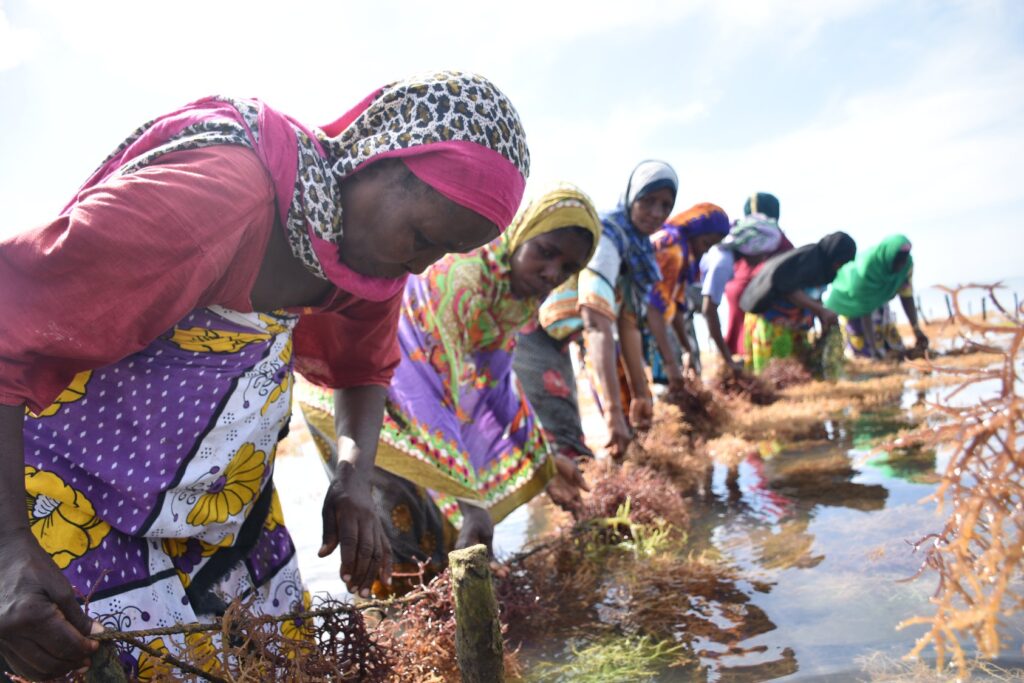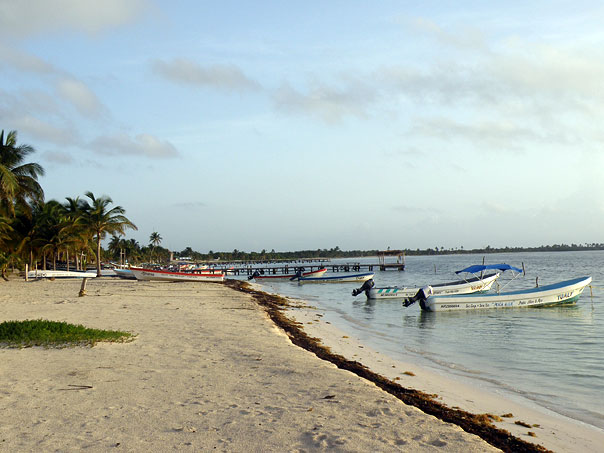Sustainable Livelihood Initiative Case Studies
The following case studies provide examples of sustainable livelihood initiatives for coastal communities:
Sustainable Aquaculture, Kenya

Seaweed farmers in Kibuyuni, Kenya. Photo © Susan Nyamawi
Seaweed farming has gained popularity in Africa and Asia Pacific regions for providing additional income sources beyond artisanal fisheries, particularly empowering women by offering workforce opportunities. In 2008, a pilot initiative in Kibuyuni, Kenya, led by Kenya Marine and Fisheries Research, introduced seaweed farming to enhance local livelihoods and create income for women. By 2020, over 200 women and 50 men were involved, with cooperative earnings growing from US$2,000 in 2012 to over US$11,000. This income helps families cover education and medical expenses and diversifies the economy. Environmentally, seaweed farms support marine life, attracting herbivorous fish. Despite successes, challenges remain, including rising temperatures, limited government support, and disruption from a new industrial fishing port, stressing the importance of community-centered development.
Read more about this case study.
Sustainable Fishing, Mexico

Fishing boats in Quintana Roo, Mexico. Photo © The EcoTipping Points Project
The Integradora de Pescadores de Quintana Roo, a legally registered aggregator cooperative, manages the eco-labeled brand Chakay, representing six fishing cooperatives with 180 families who benefit from sustainable fishing of Caribbean spiny lobster. The cooperatives operate under exclusive permits granted by national authorities to fish in biosphere reserves using freediving techniques that preserve the ecosystem by releasing juveniles and egg-bearing females. Lobsters are caught alive in ocean plots, each managed by individual fishermen using artificial shelters called casitas. This live-catch approach allows the cooperative to sell whole lobsters, increasing revenue by offering a fresh, eco-friendly product that meets fair trade and sustainability standards. The lobster is sold directly to middlemen and restaurants, fetching higher prices and reducing refrigeration needs. The co-management of this resource is a collaborative effort with governmental and non-governmental organizations focused on biodiversity, protected area management, and fisheries research.
Read more about this case study.
See the Introduction to Sustainable Livelihoods Online Course for more case studies and examples.
The Sustainable Livelihoods Toolkit was developed in collaboration with The Nature Conservancy’s (TNC’s) Indigenous Peoples & Local Communities Team and the NOAA Coral Reef Conservation Program, drawing on TNC's Indigenous & Community-Led Conservation Approach, Guide to Sustainable Livelihoods and Community Enterprises, and Voice, Choice, & Action Framework.

